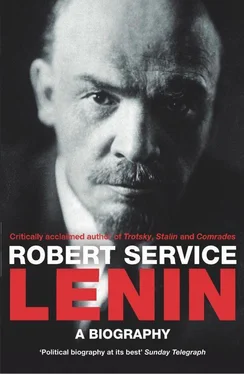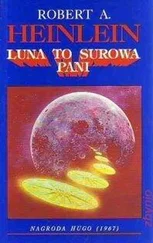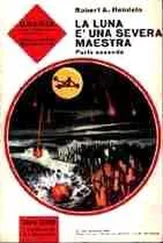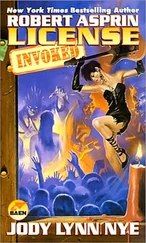Russian literature was hardly studied; nearly all the country’s great poets and novelists – Pushkin, Lermontov, Gogol, Turgenev, Lev Tolstoi and Dostoevski – were harassed by the state censorship for supplying ideas subversive of the contemporary political system. But the Russian literary heritage was not entirely ignored. In the restricted time allotted by the Ministry of Popular Enlightenment the pupils were required to learn several poems by heart. The selection included not only politically ‘safe’ figures such as Krylov, Zhukovski and Koltsov but also even Pushkin and Lermontov. The appreciation of artistry was less important to the schoolteachers than the inculcation of patriotic pride and allegiance to the monarchy. Immense slabs of poetry had to be committed to memory and tested at the end of the school year. It was a tall order. In order to be permitted to move from the fourth to the fifth class in the gimnazia, Vladimir Ulyanov and his fellow pupils had to be able to recite over a hundred poems, including forty-five fables by Krylov and thirty-one of Pushkin’s poems. It is hardly astounding that only half the class passed the end-of-year oral test enabling them to proceed to the fifth year. Vladimir was among the successful pupils. 28
Although the pupils studied French and German, the government strove to stamp out the potential for them to pick up revolutionary ideas. Grammar edged out literature. No Russian gimnazia taught Voltaire, Rousseau or Goethe, and Headmaster Fëdor Kerenski – who by an extraordinary quirk of history was father of Alexander Kerenski, who was to lead the Provisional Government in 1917 which Lenin and the Bolsheviks overthrew – banned his pupils from using the Karamzin Public Library where they might borrow disapproved works of literature. Kerenski was following the government’s guidelines. The Ministry of Popular Enlightenment, wishing to insulate gimnazia students from the contemporary world, reduced physics, chemistry and biology to a minimal presence in the curriculum (and the works of the world-famous chemist Mendeleev were withdrawn from libraries). The government also stipulated that gimnazia pupils should attend the Russian Orthodox Church services regularly. Discipline was rigorously enforced. Like other headmasters of the period, Fëdor Kerenski employed beatings, detentions, extra work and heavy moralising, and, as was the fashion in all tsarist schools, teachers encouraged pupils to snitch on their delinquent fellows. 29
Such schooling was unpleasant for most pupils. The discipline was irksome and sometimes brutal, the workload immense, the curriculum disconnected from everyday life. Although none of the worst disciplinary sanctions was applied to Vladimir, it is difficult to believe that his experience at school left no negative mark on his consciousness. The state’s direct, heavy-handed interference in the Simbirsk Classical Gimnazia had a pettifogging aspect and few bright pupils failed to draw the conclusion that if the schools were run in so bureaucratic a fashion, then so were the other state institutions. Vladimir must also have noted the contrast between his studies at home and the regime in the school. Under his mother’s tutelage his academic work had been more pleasurable; the fact that many fellow pupils abandoned the gimnazia because of the excessive requirements must surely have given him at least a rudimentary idea that all was not well. 30Yet, unlike elder brother Sasha at the same age, Vladimir did not rebel. Just once, when he was caught mimicking his incompetent French master Adolf Por, did he get into trouble. 31But his father made him promise never again to step out of line, and Vladimir reverted to his habits of obedience.
His general attitude, however, was positive and he made exceptional academic progress. Headmaster Kerenski was pleased with the adolescent, awarding him not merely 5 s but 5+ s in his school reports; he was so impressed that, according to Anna Ilinichna, he ‘forgave him certain acts of mischief that he would not so easily have forgiven in respect of others’. She added: ‘Of course, an influence here was exerted by his good attitude to Ilya Nikolaevich and the entire family.’ 32The only person to express doubts about Vladimir was indeed his father Ilya Nikolaevich, who worried that academic success was coming to him too easily and that he might not recognise the need to be industrious. 33
Vladimir’s obedience is unsurprising – and not just because of the pressure of parental expectations. The gimnazii were a pathway to the higher echelons of Imperial state and society. Vladimir Ulyanov, once he attained maturity, would automatically obtain noble status. But even the Ulyanovs needed to enhance their opportunities, and an education of this quality secured this. The prior work he had done with his mother and tutors at home meant that the curriculum was already within his reach. He was accustomed to being diligent. Immediately he became the brightest boy of his year. Annual reports gave him the full five marks in subject after subject. Never did he obtain less than this except in the single subject of logic. No doubt it helped a little that he was the son of the Simbirsk Province Director of Popular Schools. In a setting where personal contacts played a large part in everyone’s career few teachers would have wanted to offend Ilya Ulyanov. But Headmaster Kerenski did not have to write a fictional account. Vladimir Ulyanov, like his brother Alexander, was a genuinely brilliant pupil. For Vladimir, it was natural to try his hardest at school. Work was a family duty and duty was a pleasure.
He was generally unobtrusive outside lessons but was noted for his sarcasm, and when a fellow pupil broke his pencils, Vladimir grabbed him by the collar and forced him to stop. 34Not himself a trouble-maker, he met trouble with a direct physical response. No one bullied Vladimir for long. He was strong and stocky, and it did him no harm that he shared his expertise when others could not understand the lessons. But he had no close friends at the gimnazia. 35Vladimir got on with his work, left people alone and expected to be left alone. He was a bit of a loner.
Meanwhile his education was inculcating an attentiveness to the precise meaning of words; the years of parsing Latin verbs and construing Greek iambics left their mark. The pernicketiness of Lenin the writer–revolutionary owes as much to the literary heritage of Athens and Rome as to Karl Marx and Friedrich Engels. It may even be that he first learned from the orators Demosthenes and Cicero how to discern a crack in the wall of an opponent’s arguments and prise it open – and perhaps the stories of heroism in the epic poetry of Homer and the prose of Xenophon and Livy predisposed him to give high value to the potential role of the individual leader. Nor can anyone who has made a close study of the historians Herodotus and Thucydides fail to be influenced by their insistence on delving below the surface of events to their hidden basic causes. But all this is speculation. Vladimir Ulyanov was reluctant to reveal much about his early life. What little we know about his reaction to the Classics comes from his relatives. His sister Anna, for example, wrote that his zest for Latin was such that he provided her – six years his senior – with coaching on the more difficult elements of grammar. 36
Thus throughout the rest of his life he quoted sentences from the ancient authors even though most of his readers had not had the benefit of his education. This was not just a bit of exhibitionism; it was the unconscious behaviour of former Classicists everywhere in contemporary Europe. In later years he had no time for Latin and Greek. But then suddenly in 1914, at the outbreak of the Great War, he felt a compulsion to resume his philosophical research and (as we shall see) to include Aristotle among the authors he studied.
Читать дальше












